The Quest for Community Webinar Series

A Future for American Conservatism
Event Details
For more information about this event, please email sppevents@pepperdine.edu, or call 310.506.7490.
American conservatism stands at a crossroads. Launched after the 2016 elections, the American Project is arguing for a reimagined communitarian conservatism (or a "conservatism of connection") in public policy and political rhetoric is the best way forward.
Originally planned as a summer conference here on our Malibu campus, "The Quest for Community: A Future for American Conservatism" has now transitioned to a series of webinars with leading thinkers, activists, and policymakers exploring the implications of renewing our appreciation for this long-standing tradition in conservative thought and policy. Deriving our title from the late sociologist Robert Nisbet's foundational book, The Quest for Community, this series will discuss the current day implications of this work—what it means for today's policy and politics.
Past Webinars
In a time of pandemic and social upheaval, the consideration of a communitarian conservatism seems like a quaint notion. But does this era—with its "social distancing" and national debates on American identity—actually demand a renewed appreciation of this humanistic approach to our public policy and politics? Join two of today's leading thinkers and cultural critics as we begin this interactive webinar series by defining what is meant by the phrase "communitarian conservatism" and then discuss how it may be uniquely relevant for our distinctly polarized time in American policy and politics.
Panelists
Ross Douthat joined The New York Times as an Op-Ed columnist in April 2009. His column appears every Tuesday and Sunday, and he co-hosts the Times Op-Ed podcast, "The Argument." Previously, he was a senior editor at The Atlantic and a blogger on its website.
He is the author of The Decadent Society, which published in March 2020. His other books include To Change the Church: Pope Francis and the Future of Catholicism, published in 2018, Bad Religion: How We Became a Nation of Heretics (2012), Privilege: Harvard and the Education of the Ruling Class (2005), and a co-author, with Reihan Salam, of Grand New Party: How Republicans Can Win the Working Class and Save the American Dream (2008). He is the film critic for National Review.
He lives with his wife and four children in New Haven.
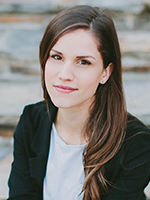
Gracy Olmstead is a writer whose work has appeared in The American Conservative, New York Times, The Washington Post, and elsewhere. Her book Uprooted: Recovering the Legacy of the Places We've Left Behind will be published March 16, 2021.
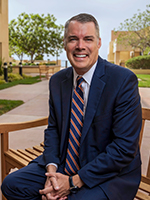
Pete Peterson is the Braun Family Dean at the Pepperdine School of Public Policy and is co-director of the American Project. He is a leading national speaker and writer on issues related to civic participation, and the use of technology to make government more responsive and transparent.
Peterson writes widely on public engagement for a variety of major news outlets including the Wall Street Journal, Los Angeles Times, and San Francisco Chronicle, as well as numerous blogs. He is a regular guest on the "Politics Roundtable" with host Larry Mantle on KPCC radio.
He contributed the chapter, "Place As Pragmatic Policy" to the edited volume, Why Place Matters: Geography, Identity, and Civic Life in Modern America (New Atlantis Books, 2014), and the chapter "Do-It Ourselves Citizenship" in the volume, Localism in the Mass Age (Wipf & Stock, 2018).
Peterson has been a public affairs fellow at The Hoover Institution, and he serves on the Leadership Councils of the Public Policy Institute of California and California Forward, and on the boards of the Homeland Security Advisory Council and the Da Vinci Charter Schools.
Peterson was the Republican candidate for California Secretary of State in 2014.
The "quest for community" has always been challenged by particular views of "expertise," and a decline in active civic participation. It is what Tocqueville dubbed the "immense tutelary state." The particular threats to the community in America have several unique qualities:
- Americans experience the power of several classes of elites in their lives and, most importantly, in the laws, regulations, and the more informal power to regulate norms and beliefs.
- However long this has been developing, Americans generally have come to notice its power in the last 15 years.
- One of the powers—expressing itself in both formal and informal ways—of these overlapping classes of elites is to undermine voluntary associations and all manner of conditions that are necessary to the creation of rich, thick, local communities.
As a result of this process of both atomizing and tribalizing (using tribalizing here as a result of atomizing and therefore in contrast to healthy communities built on a rich associational life), Americans are robbed of the advantages of community and are instead governed in more and more detailed ways by governments and, particularly, by administrative systems of those governments which use the authority of "science" and expertise to control our lives. In this conversation, Mac Donald, Caldwell, and McAllister will outline the historical, cultural, and political implications in these trends that have resulted in the current state of decadence and weakened levels of civic trust and participation.
Panelists
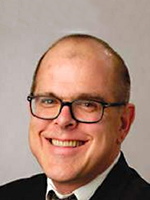
Christopher Caldwell is a Senior Fellow and contributing editor of the Claremont Review of Books.
Mr. Caldwell's bylines appear regularly in the Financial Times, The Wall Street Journal, The New York Times, and The Washington Post. He is also the author of Reflections on the Revolution In Europe (2009), an acclaimed study of the impact of the mass immigration of Muslim immigrants to Europe in the 20th century.
He is a graduate of Harvard College.
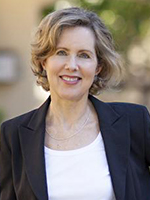
Heather Mac Donald is the Thomas W. Smith Fellow at the Manhattan Institute, a contributing editor of City Journal, and a New York Times bestselling author. She is a recipient of the 2005 Bradley Prize. Mac Donald's work at City Journal has covered a range of topics, including higher education, immigration, policing, homelessness and homeless advocacy, criminal-justice reform, and race relations. Her writing has appeared in the Wall Street Journal, Washington Post, New York Times, Los Angeles Times, The New Republic, and The New Criterion. Mac Donald's newest book, The Diversity Delusion: How Race and Gender Pandering Corrupt the University and Undermine Our Culture (2018), argues that toxic ideas first spread by higher education have undermined humanistic values, fueled intolerance, and widened divisions in our larger culture.
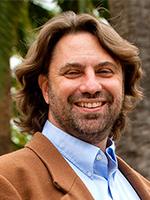
Ted McAllister, an intellectual historian, brings a historical imagination to the public policy curriculum, a perspective not typical of such programs. He is the Edward L. Gaylord Chair and associate professor of Public Policy at the Pepperdine School of Public Policy. A recipient of the Woodrow Wilson Foundation's Charlotte W. Newcombe Doctoral Dissertation Fellowship, he also received the Leland Sage Fellowship as well as several additional grants including one from the Earhart Foundation. The author of a volume entitled Revolt Against Modernity: Leo Strauss, Eric Voegelin, and the Search for a Postliberal Order, he has completed a new textbook on American history entitled The Promise of Freedom: A History of the United States. Among his other publications, he has authored the chapter "Reagan and the Transformation of American Conservatism" in The Reagan Presidency. McAllister has lectured frequently on the nature and future of American conservatism, including recent presentations at Oxford University and at Universität Erlangen-Nürnberg in Germany. In addition to his research into conservative philosophy, he is currently working on a history of the baby boomer generation.
McAllister serves (with Jean Bethke Elshtain and Wilfred McClay) as an editor of Rowman & Littlefield's book series, American Intellectual Culture, which is designed to produce books that examine the intersection of culture and politics in American history. At Pepperdine, he teaches the core class entitled Ethical Dimensions of Public Policy: Great Books and Great Ideas, as well as a variety of elective courses that focus on putting policy debates in larger historical and philosophical contexts, including such classes as Comparative Federalism, Public Policy in Modern America, and American Democratic Culture.
A graduate of Oklahoma Christian College, he earned his master's degree from Claremont Graduate School before completing his doctoral degree in American intellectual and cultural history at Vanderbilt University.

Pete Peterson is the Braun Family Dean at the Pepperdine School of Public Policy and is co-director of the American Project. He is a leading national speaker and writer on issues related to civic participation, and the use of technology to make government more responsive and transparent.
Peterson writes widely on public engagement for a variety of major news outlets including the Wall Street Journal, Los Angeles Times, and San Francisco Chronicle, as well as numerous blogs. He is a regular guest on the "Politics Roundtable" with host Larry Mantle on KPCC radio.
He contributed the chapter, "Place As Pragmatic Policy" to the edited volume, Why Place Matters: Geography, Identity, and Civic Life in Modern America (New Atlantis Books, 2014), and the chapter "Do-It Ourselves Citizenship" in the volume, Localism in the Mass Age (Wipf & Stock, 2018).
Peterson has been a public affairs fellow at The Hoover Institution, and he serves on the Leadership Councils of the Public Policy Institute of California and California Forward, and on the boards of the Homeland Security Advisory Council and the Da Vinci Charter Schools.
Peterson was the Republican candidate for California Secretary of State in 2014.
Often seen as a nostalgic pining for the past, and framed both philosophically and historically, a reimagined communitarian conservatism requires an actual set of policies in order to be realistically considered by the broader public. In this third webinar in our "Quest for Community" series, we welcome four public policy experts to discuss the following questions:
- Is there a vital role for government in a communitarian conservatism for the 21st century? Can government policy better support civil society?
- How does the growing localism movement fit within these policy discussions?
- How does the Constitution's framing of different government roles support communitarian conservatism?
- How does this reimagined communitarian conservatism balance "community freedom" with broader civil rights?
Join us for this important conversation as we move from theory to practice in our next "Quest for Community" webinars.
Panelists
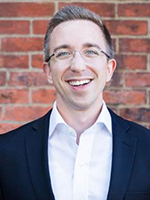
Michael Hendrix is director of state and local policy at the Manhattan Institute. Previously, he served as senior director for research and emerging issues at the US Chamber of Commerce Foundation. Hendrix is a frequent public speaker, and his writings have appeared in, among others, National Review, City Journal, and National Affairs. He holds an MA in international relations from the University of St. Andrews (Scotland), as well as a certificate in strategy and performance management from Georgetown University.
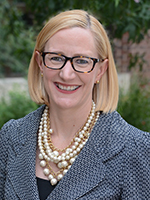
Holly Kuzmich serves as Executive Director of the George W. Bush Institute. She oversees the strategy and management of the Institute, an action-oriented policy organization that develops leaders, advances policy, and takes action to solve today's most pressing challenges. The Institute's work focuses on education reform, military service, economic growth, human freedom and democracy, global health, and women's empowerment. Kuzmich also oversees the Presidential Leadership Scholars program, a unique leadership development program in collaboration with the Clinton Foundation, George H.W. Bush Foundation, and Lyndon Baines Johnson Foundation. In addition to her role in the Institute, she also serves in a management role as senior vice president of the Bush Center.
Kuzmich has more than 20 years of public policy experience, serving in senior positions in the government, private, and nonprofit sectors. She is a veteran of the White House, the US Department of Education, and Capitol Hill, where she developed her expertise in education policy. She served in President Bush's administration for seven years, first on the staff of the White House Domestic Policy Council and then as deputy chief of staff and assistant secretary for Legislation and Congressional Affairs at the US Department of Education. Prior to that, she worked for two United States Senators on domestic policy issues. She has also consulted on education and workforce issues with major foundations, companies, nonprofits, and policymakers.
Kuzmich is a Pahara-Aspen Institute Fellow and a member of the Texas Lyceum. A native of South Bend, Indiana, she received her Bachelor's degree from Northwestern University.
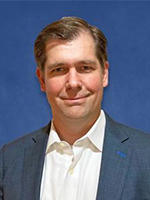
Andy Smarick is a Senior Fellow at the Manhattan Institute, where his work focuses on education, civil society, and the principles of American conservatism. He was confirmed by the Maryland State Senate in March 2020 for a term on the Maryland Higher Education Commission.
Previously, Smarick was a senior fellow and director of the program on civil society, education, and work at the R Street Institute, as well as the Morgridge Fellow at the American Enterprise Institute. He has also served as an aide in the White House Domestic Policy Council of President George W. Bush, president of the Maryland State Board of Education, a deputy assistant secretary at the US Department of Education, the New Jersey deputy commissioner of education, a legislative assistant at the US House of Representatives, and a legislative aide at the Maryland General Assembly.
Smarick has authored or edited four books: The Urban School System of the Future: Applying the Principles and Lessons of Chartering (2012); Closing America's High-achievement Gap: A Wise Giver's Guide to Helping Our Most Talented Students Reach Their Full Potential (2013); Catholic School Renaissance: A Wise Giver's Guide to Strengthening a National Asset (2015); and No Longer Forgotten: The Triumphs and Struggles of Rural Education in America (2018). His work has also been published in outlets such as The Atlantic, Washington Post, Education Week, New York Daily News, and Philanthropy, among others.
Smarick received a BA in government and politics, summa cum laude and with honors, from the University of Maryland and a Master of Public Management from the University of Maryland's School of Public Policy.
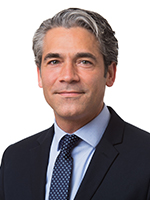
Ryan Streeter is the director of domestic policy studies at the American Enterprise Institute (AEI), where he oversees research in education, technology, housing, poverty studies, workforce development, and public opinion. Before joining AEI, he was executive director of the Center for Politics and Governance at the University of Texas at Austin.
Streeter has had a distinguished career in government service, which includes being deputy chief of staff for policy for Indiana Governor Mike Pence, special assistant for domestic policy to President George W. Bush at the White House, and policy adviser to Indianapolis Mayor Stephen Goldsmith. Outside of government, he has served as a senior fellow at the Legatum Institute and as a research fellow at the Hudson Institute.
He is the author of Transforming Charity: Toward a Results-Oriented Social Sector (Hudson Institute, 2001); the editor of Religion and the Public Square in the 21st Century (Hudson Institute, 2001); the co-author of The Soul of Civil Society: Voluntary Associations and the Public Value of Moral Habits (Lexington Books, 2002); and a contributor to the Stephen Goldsmith book, Putting Faith in Neighborhoods: Making Cities Work Through Grassroots Citizenship (Hudson Institute, 2002).
In addition to his many television and radio appearances, which include BBC News, CNBC, Fox News, and MSNBC. Streeter's articles have been widely published in outlets including The Weekly Standard, The Washington Post, The Wall Street Journal, and National Review.
Streeter has a PhD in political philosophy from Emory University.

Pete Peterson is the Braun Family Dean at the Pepperdine School of Public Policy and is co-director of the American Project. He is a leading national speaker and writer on issues related to civic participation, and the use of technology to make government more responsive and transparent.
Peterson writes widely on public engagement for a variety of major news outlets including the Wall Street Journal, Los Angeles Times, and San Francisco Chronicle, as well as numerous blogs. He is a regular guest on the "Politics Roundtable" with host Larry Mantle on KPCC radio.
He contributed the chapter, "Place As Pragmatic Policy" to the edited volume, Why Place Matters: Geography, Identity, and Civic Life in Modern America (New Atlantis Books, 2014), and the chapter "Do-It Ourselves Citizenship" in the volume, Localism in the Mass Age (Wipf & Stock, 2018).
Peterson has been a public affairs fellow at The Hoover Institution, and he serves on the Leadership Councils of the Public Policy Institute of California and California Forward, and on the boards of the Homeland Security Advisory Council and the Da Vinci Charter Schools.
Peterson was the Republican candidate for California Secretary of State in 2014.
Thursday, October 15, 2020
9:30 AM PDT / 12:30 PM EDT
Online Zoom Series
Is pride in our local community enough of an identity in America to offer an alternative to America's Left and Right tribal identity politics?
In his 2019 breakthrough book on the 2016 election, Alienated America: While Some Places Thrive While Others Collapse, author Timothy P. Carney, resident fellow at American Enterprise Institute posits "Geography, more than we typically assume is destiny . . . Strong communities function not only as safety nets . . . These are where we find our purpose."
Since Carney's study of the 2016 election, the COVID crisis has exacerbated America's disconnected and loneliness epidemic. The 2020 election has sharpened ideological differences. The death of George Floyd and the rise of the BLM movement have heightened tensions over racism.
In response, both America's political Left and Right are increasingly defining themselves along the lines of group racial identity. On the left, Identity Politics seeks to create a coalition of oppressed racial and gender groups and their allies into one coalition against perceiving oppressors on the right. The right has spoken of a white identity politics based on US nationalism and ties to traditional Christianity manifesting itself in Trumpian and the new National Conservative movement.
These two identities have become tribal and hyper-partisan leaving no room for debate and great potential for violent conflict.
The American Project is seeking solutions by finding "places of connection" to consider including where we live as ways to fight radical individualism on the Left/Right offering a new prism to see identity that is place-based for citizens at their local level.
Studies show that houses of worship may be one of the last places citizens of different races, genders, orientations, ideologies, and ages come together. Levels of trust are highest in these institutions. Sports teams also manifest a sense of local community for diverse groups that break down old divisions. Cities, such as New York, offer deep identity and during the pandemic are grappling with an exodus of citizens leading to the creation of new organizations to imagine a new, New York.
This webinar seeks to explore the points of connections in America outside of identity politics as ways our nation can avoid the increasing polarization.
Panelists
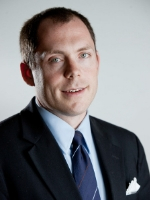
Timothy P. Carney is a resident fellow at the American Enterprise Institute, where he works on economic competition, cronyism, civil society, localism, and religion in America. He is concurrently the commentary editor at the Washington Examiner.
Carney's latest book, Alienated America: Why Some Places Thrive While Others Collapse (HarperCollins), was published in February 2019. His previous books include Obamanomics: How Barack Obama Is Bankrupting You and Enriching His Wall Street Friends, Corporate Lobbyists, and Union Bosses (Regnery Publishing, 2009) and The Big Ripoff: How Big Business and Big Government Steal Your Money (John Wiley & Sons, 2006), which was awarded the 2008 Culture of Enterprise award by the Intercollegiate Studies Institute.
In addition to his Washington Examiner columns, Carney's work has been published in a variety of magazines, websites, and newspapers, including The Atlantic, New York Post, The New York Times, Reason Magazine, and The Wall Street Journal. His television appearances include CNBC, CNN, Fox News, MSNBC, and the "PBS NewsHour."
Carney has a bachelor's degree from St. John's College in Annapolis.
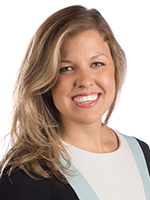
Rachel (Kopec) Barkley is an experienced coalition and community builder at the state and national level. She recently started her own small business, RK Barkley Consulting, Inc., to help organizations advance policies that promote personal freedom and human dignity through coalition building and policy strategy. She also is the External Relations Senior Advisor for Rep. Cathy McMorris Rodgers (WA-05).
Previously, Rachel worked as Director of Outreach for the US House of Representatives Conference chair and as director of coalitions and state outreach for the largest caucus in Congress. In her role, she partnered with outside think tanks, advocacy groups, trade associations, and state leaders to advance legislation and coordinate messaging strategies. Rachel got her start at a national non-profit for state policy think tanks, where she worked as a liaison between state and national organizations. She serves on the board for a DC charter school start-up and on the advisory council for Pepperdine University School of Public Policy's American Project.
Rachel is also a disabled mother and wife, having survived a rare tumor in her spinal cord. She is originally from Ocala, Florida, and graduated from the University of Florida with dual degrees in Public Relations and Political Science.
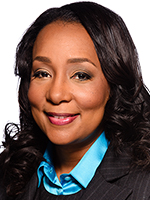
Angela Sailor is an executive with 20 plus years of experience delivering measurable achievements in both in-house and advisory roles working with government (White House, Congress, US Department of State, US Department of Education), corporate, nongovernmental organizations (NGOs), and non-profit organizations (NPOs). Most recently she served as Deputy to the President and Founder of The Gloucester Institute the Honorable Kay Coles James, President, as a public member of the Senior Foreign Service Selection Board for the United States Department of State, and adjunct professor for Georgetown University's Continuing School of Education.
Sailor has also worked to promote policy through public sector leadership positions at the federal, state, and local levels. Serving in The White House Office of Public Liaison, Sailor successfully formed coalitions to support Presidential policy initiatives while driving stakeholder support and advancing strategic communication to traditional and niche markets. Her portfolio included domestic policy directly impacting the African-American and Senior Citizen communities. She served as a champion for Presidential policies supporting Education, Faith-based initiatives, Health Care, Housing, Small Business, Social Security, and Welfare policy. As a White House surrogate, Angela hosted White House briefings, East Room and Rose Garden events with the President, as well as, regional and local town hall meetings with cabinet and senior Administration officials.
She served as Deputy Chief of Staff to the United States Department of Education, Office of Secretary Rod Paige. In this role, Sailor worked closely with the White House on a wide variety of policy matters coming before the Secretary and represented the Secretary to internal and external stakeholders. She had oversight of White House Initiatives on Educational Excellence and Higher Education, as well as the Office for Faith-Based Initiatives. Special Projects included No Child Left Behind War Room, 50th Anniversary of Brown v. Board Education, and the Title IX Commission on Opportunities in Athletics. She worked for the United States Senate Judiciary Committee, Subcommittee on Immigration for former U.S. Sen. Spencer Abraham. Also, her roles at the state and local level include work in Michigan's Legal Office for longtime Republican Governor John Engler, for the State of Michigan Appeals Court, Detroit, Michigan, and for Detroit Michigan Wayne County Commission.
Sailor has been on the front lines working for the election of conservative leaders to federal and state offices. As National Coalitions Director, Department Head, and Senior Advisor at the Republican National Committee, Sailor held budget management and oversight of three departments – Coalitions and Strategic Communications (internal/external), Constituent Services, and the RNC Internship Program. In this capacity, Angela was charged with building a new department, leading program design, planning, logistics, fundraising, cross-cultural messaging, cultural training, alliances, online engagement, roundtable discussions, promotion, and engagement. A signature project included creating and directing operations for a national bus tour covering 14,000 miles, 48 states, and 100+ cities, for which Angela oversaw 200 staff and volunteers and managed the operation at 45% under the projected budget.
Sailor also served as Director of African-American Affairs, for George W. Bush's Victory 2000 Presidential Campaign. In this capacity, she served as liaison to Congressional, state, and local African-American Republican candidates. Sailor built stronger alliances with urban-centered businesses, community, education, and religious leaders across America, and she managed coalition field staff and volunteers across the country.
Sailor's corporate experiences include serving as a Partner for Watts Consulting Group where Sailor managed government and legislative advocacy, crisis management, crisis communications, political, cultural analysis, and thought leadership for clients such as John Deere, NASCAR, Strong American Schools, and Wells Fargo. She also built private/public partnerships among Universities, Congressional Offices, nonprofit organizations (NPOs), and trade associations.
Her early career includes Manager of the Detroit Regional Chamber of Commerce; Communications, Sales, and Marketing Strategist for Black Entertainment Television; and Sales and Marketing for Procter and Gamble. Media experiences include serving as a radio host with WGTZ 93 Dayton, Ohio, WCSU-FM 88.9, and as a freelance producer with Fox Morning News, Washington, D.C.
Sailor holds a Juris Doctorate from the University of Memphis, Cecil C. Humphreys School of Law and a Master's Degree in Broadcast Journalism and Public Affairs from the American University. She is married with two children.
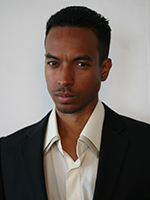
John Wood, Jr. is a former nominee for congress and a former vice-chairman of the Republican Party of Los Angeles County. A noted writer and speaker on the subjects of political and racial reconciliation John's written work have been featured in publications including The Wall Street Journal, The Washington Examiner, and Quillette Magazine. He is a national spokesperson for the bipartisan organization Braver Angels and lives in South Los Angeles with his wife and three children.
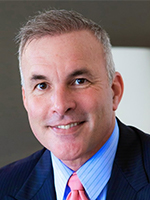
Rich Tafel serves as the co-founder of the American Project at Pepperdine School of Public Policy with Dean Peterson. Prior to the American project, he facilitated an informal gathering of conservative leaders interested in charting the future of the movement. Rich has over 20 years leading within the conservative movement and Republican Party. In 1990, he managed his first state representative race in Massachusetts for Michael Duffy. In a district that was 9:1 Democrat/Republican, Duffy lost by just 250 votes. His opponent continues to hold that seat until this day. He also supported William Weld's run for governor that year and when Governor Weld (R-MA) won he appointed Rich to the position of Director of Adolescent Health for Massachusetts Department of Public Health. Prior to this, Tafel served as an assistant minister at Harvard Memorial Church under the leadership of the Rev. Peter J. Gomes.
Monday, December 14, 2020
9:00 AM PST / 12:00 PM EST
From philosophical to policy-focused conversations, the Quest for Community webinar series has explored a variety of ways to understand a reimagined communitarian movement in the United States. But what does this civic-minded conservatism look like in practice?
Join a panel of civic leaders who are having an impact on local issues from addiction to homelessness. The American Project argues for the conservatism of connection, which promotes the nation's revered civic institutions as ways of providing opportunities to connect with one another and to engage in the hard work of citizenship. If conservatives are going to support limited government, then they must support a more robust form of civic engagement—both individually and corporately through nonprofit institutions. See what this looks like in communities across the country.
Toward the end of a polarizing political season, be inspired by this panel of leaders who are making a difference from the ground up.
Speakers
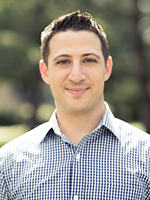
Evan Feinberg is executive director of Stand Together Foundation, our philanthropic community's effort to break barriers and improve lives in communities. Stand Together Foundation vets nonprofit organizations across the country to select social entrepreneurs capable of helping people break the cycle of poverty. Once selected, Stand Together Foundation helps social entrepreneurs grow through management support, financial resources, and connections to the other capabilities and resources of our philanthropic community. Prior to joining Stand Together Foundation, Feinberg served as president of Generation Opportunity and as a program manager at the Charles Koch Institute. In 2012, Feinberg became one of the first millennials to run for the US Congress in his hometown of Pittsburgh, Pennsylvania. Earlier in his career, Feinberg served as a senior aide to US Senators Rand Paul and Tom Coburn and as a researcher at the Heritage Foundation. His wife, Sarah, is a former officer in the US Marine Corps and a veteran of the Iraq War. They have three boys: Luke, Zack, and Jake.
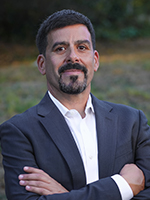
Jesús Gerena is CEO of Family Independence Initiative (FII), an antiracist change organization that trusts and invests in low-income families, allowing them to move themselves out of poverty. Under Gerena's leadership, FII has quadrupled its revenue, doubled in staff, and expanded its work to all 50 states through the adoption of its strength-based approach (SBA) and technology platform, UpTogether.
Prior to joining FII in 2010, Gerena worked for the Hyde Square Task Force (HSTF), where he served as Deputy Director and worked on the Youth First project that helped lay the groundwork for a proposed $250 million urban development project. In 2008, the HSTF team organized and designed a youth-led comprehensive Civics curriculum in Boston Public Schools.
Gerena has held numerous Board leadership positions across New England and is also a co-founder of the Community Fellows Program at the Institute for Nonprofit Practice. He currently serves on advisory groups for The Aspen Institute and The Kresge Foundation. Gerena is an established speaker and has presented at myriad conferences and gatherings across the United States, most notably as a featured speaker at the 2011 TEDx Cambridge conference. In 2015, the Boston-based Barr Foundation awarded Gerena a Barr Fellowship for his contributions to the city and his potential to drive positive change. Recently, the Schwab Foundation named Gerena as a 2020 Social Innovator of the Year for leading FII's work supporting tens of thousands of families across the US during the COVID-19 pandemic.
A native of Puerto Rico, Gerena is the youngest of three children born to parents who were just nineteen years old when they married. Although his family struggled to make ends meet, they benefited from a support network of extended families and friends. It was not until his parents' divorce that this support network fractured, causing him, his mother, and siblings to struggle in deep poverty. At the age of nine, Gerena moved with his mother and siblings to Amherst, Massachusetts. This community was full of resources, lifting up opportunities for Gerena's family to achieve their goals. This life experience has shaped Gerena, fueling his desire to eliminate place, race, or economic position as the marker for individual and collective success.
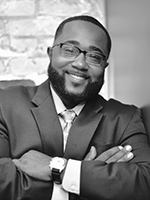
Antong Lucky, the founder and former leader of the Dallas 415 Bloods Gang, is the Urban Specialists Master Educator and National Engagement Director for OGU (Original Gangstas University). At an early age, Lucky was embroiled in a life of crime, gang violence, and drug dealing that ultimately landed him in prison. In prison Antong denounced his gang affiliation, started to read a lot of books to educate himself, and begin working to unite the rival gangs. Antong quickly rose to become one of the most respected and sought-after mentors in prison. His teachings of conflict resolution taught fellow inmates how not to use violence as their primary language but instead practice peace. Antong has spent the last twenty years working to end violence in communities by training OGs (Original Gangstas) across the country to effectively mentor youth away from a life of gangs, crime, and violence. Most recently Antong trains police officers on effective community engagement strategies. Antong is a sought out speaker on issues of eradicating violence, Re-entry, criminal justice reform, and bridging the gap between law enforcement and the community.
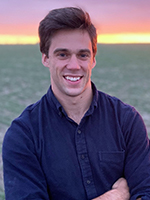
Joe Nail is the CEO & Co-Founder of Lead For America (LFA). LFA works to ensure that every American neighborhood and community has the moral, representative, locally-rooted, and long-term committed leadership necessary to address its most critical challenges. In just 2.5 years LFA has grown from a dorm room startup to an organization that has launched the civic leadership careers of more than 600 young people in 95 communities nationwide, with annual revenues of $5 Million. Nail is determined to train and equip a generation of Americans to be outstanding civic leaders in the communities they call home, including 50,000 through LFA's flagship Fellows program in the next 20 years. LFA has been profiled nationally by outlets including the Washington Post and NPR and was awarded Fellowships from Summit, Praxis, and National Geographic. In 2020, Nail was named to Forbes' 30 Under 30 list.
Nail's call to public service comes from his family. His Mom is a middle school nurse, and his Dad works for the Army as a civilian contractor. It was during his Dad's year-long deployment to Afghanistan that Nail began to understand just how blessed he was to grow up in a community with great schools, safe neighborhoods, and a loving family. And it was also during that year that he began to understand the profound impacts of policy, from the frequent lack of support at the community level for people like his sister who has a severe intellectual disability, to the decisions at the international level that send our troops overseas. After college, Nail wanted to return to his home state of Kansas to serve but found there were few established pathways to do so, especially in states and communities like his own where the narrative of success means leaving and never coming back. He created Lead For America to change that narrative, and to ensure that our nation's most dynamic and moral young leaders are working on their communities' toughest challenges.
Nail previously co-founded a national college access nonprofit that helped hundreds of low-income and first-generation students be accepted to and attend college and spent one year in Germany on a Congress Bundestag Youth Exchange scholarship between high school and college. Nail graduated Phi Beta Kappa with the highest distinction from UNC-Chapel Hill as a Morehead-Cain, National Merit, and Coca-Cola Scholar. He is also an avid outdoorsman and competes in triathlons and ultramarathons. Joe and Lead For America are based in Dodge City, a strong and diverse community of 30,000 in Southwest Kansas.

Pete Peterson is the Braun Family Dean at the Pepperdine School of Public Policy, and is co-director of the American Project. He is a leading national speaker and writer on issues related to civic participation, and the use of technology to make government more responsive and transparent.
Peterson writes widely on public engagement for a variety major news outlets including the Wall Street Journal, Los Angeles Times, and San Francisco Chronicle, as well as numerous blogs. He is a regular guest on the "Politics Roundtable" with host Larry Mantle on KPCC radio.
He contributed the chapter, "Place As Pragmatic Policy" to the edited volume, Why Place Matters: Geography, Identity, and Civic Life in Modern America (New Atlantis Books, 2014), and the chapter "Do-It Ourselves Citizenship" in the volume, Localism in the Mass Age (Wipf & Stock, 2018).
Peterson has been a public affairs fellow at The Hoover Institution, and he serves on the Leadership Councils of the Public Policy Institute of California and California Forward, and on the boards of the Homeland Security Advisory Council and the Da Vinci Charter Schools.
Peterson was the Republican candidate for California Secretary of State in 2014.
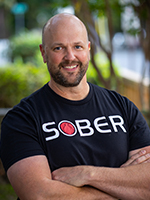
On the road to recovery from his drug & alcohol addiction, Scott Strode found self-confidence and a new identity in sports. "Every time I stood on top of a mountain or crossed a finish line, I was a little more a climber, and a little less an addict."
Today, Scott is not only a triathlete and mountaineer, he's the founder and national executive director of The Phoenix: A free sober active community that helps individuals rise, recover and live through the power of fitness and community. The Phoenix is based on Strode's own discovery that a healthy, active lifestyle has a transformative effect on long-term sobriety.
In response to the COVID 19 pandemic, Strode and his team began offering live streamed and on demand classes, which have not only permitted current members to remain connected and prospective members to try out classes, but has made it possible for the community supported by The Phoenix to expand globally!
Since 2006, The Phoenix free sober active community has inspired more than 38,000 people across America to believe they have the strength to rise from the ashes of addiction through the support of those who are walking that very same path. From CrossFit and climbing, to hiking, running, cycling, yoga and more, we believe fostering human connections in mental, physical and spiritual fitness is a powerful way to rebuild wounded bodies and spirits and restore hope.
Monday, April 5, 2021
10:00 - 11:15am PST / 1:00 - 2:15 pm EST
Online Zoom Session
While the American Project at Pepperdine School of Public Policy has focused on exploring the history and future implications of a "conservatism of connection" in our policy and politics, the philosophical and practical background of communitarianism has stretched across partisan boundaries. From thinkers—like Robert Nisbet and Hannah Ahrendt—to policy influencers—like Peter Berger and John McKnight—the seeds of a multi-partisan movement were sewn decades ago.
In particular, the 1990s provide an interesting precedent for a reimagined communitarian movement for the 21st century. Recent American Project panels have highlighted a thriving consensus during that decade, which involved policymakers across Democratic and Republican presidential and gubernatorial administrations. This coalition seemed to collapse with 9/11 and a dramatic swing toward federal and international policy.
As the pandemic highlights the societal challenges brought about by loneliness and alienation, could the time be right for a revived communitarian movement with its focus on local engagement and the strengthening of our civic institutions?
Join two civic practitioners—one from the left, the other from the right—as they discuss the prospects (and challenges) for a new communitarian consensus in our public policy and politics.
Panelists
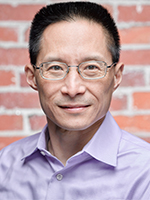
Eric Liu is the co-founder and CEO of Citizen University, which works to build a culture of powerful and responsible citizenship in the United States. He also directs the Aspen Institute's Citizenship & American Identity Program. He is the author of several acclaimed books, including The Accidental Asian: Notes of a Native Speaker; The Gardens of Democracy (co-authored with Nick Hanauer); You're More Powerful Than You Think: A Citizen's Guide to Making Change Happen; and his most recent, Become America: Civic Sermons on Love, Responsibility, and Democracy, a New York Times New & Notable Book. He has been selected as an Ashoka Fellow and a member of the American Academy of Arts and Sciences. He is featured on the PBS documentary American Creed and is a frequent contributor to The Atlantic. Liu served as a White House speechwriter for President Bill Clinton and later as the President's deputy domestic policy adviser. He was later appointed by President Obama to serve on the board of the Corporation for National and Community Service. He and his family live in Seattle.

Pete Peterson is a leading national speaker and writer on issues related to civic participation, and the use of technology to make government more responsive and transparent. He was the first executive director of the bi-partisan organization, Common Sense California, which in 2010 joined with the Davenport Institute at the School of Public Policy to become the Davenport Institute for Public Engagement and Civic Leadership. In 2008, he developed the organization's annual Public Engagement Grant Program, which has provided over $500,000.00 in grants over the last several years to dozens of municipal governments across California. Peterson has also consulted on several of these projects with local governments and has directly facilitated public meetings.
Peterson has co-created and currently co-facilitates the training seminar, "Public Engagement: The Vital Leadership Skill in Difficult Times" a program that has been attended by over 2,000 municipal officials, and he also co-created and co-facilitates the seminar, "Gov 2.0: What Public Officials Need to Know."
In 2017, SPP launched a new initiative titled the "American Project: On the Future of Conservatism", which is co-directed by Dean Peterson and Rich Tafel. The "Project" is a unique effort to gather scholars and activists from a variety of points on the conservative spectrum to deliberate over, write about, and discuss the future of the conservative movement.
Peterson writes widely on public engagement for a variety of major news outlets including the Wall Street Journal, Los Angeles Times, and San Francisco Chronicle, as well as numerous blogs. He is a regular guest on the "Politics Roundtable" with host Larry Mantle on KPCC radio. He has also helped write several survey-based reports on the subject, including "Testing the Waters: California's Local Officials Experiment with New Ways to Engage the Public" (in collaboration with the League of California Cities), and the "California Civic Health Index" (in collaboration with the National Conference on Citizenship). He contributed the chapter, "Place As Pragmatic Policy" to the edited volume, Why Place Matters: Geography, Identity, and Civic Life in Modern America (New Atlantis Books, 2014), and the chapter "Do-It Ourselves Citizenship" in the volume, Localism in the Mass Age (Wipf & Stock, 2018).
Pete has been a public affairs fellow at The Hoover Institution, and he serves on the Leadership Councils of the Public Policy Institute of California and California Forward, and on the boards of the Homeland Security Advisory Council and the Da Vinci Charter Schools.
Peterson was the Republican candidate for California Secretary of State in 2014.
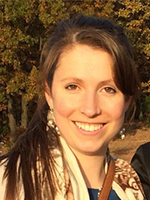
April Lawson leads Braver Angels' Debate and Public Discourse Program. April designed Braver Angels Debates and has grown the program from its first debate to serving over 1,000 participants per month. She oversees a team of 50 volunteers and staff to administer all Braver Angels' debate work and is lead voice in public-facing communications. Previously, she provided research and editing for David Brooks' weekly columns at The New York Times. Most recently, she cofounded and served as the Associate Director for Brooks' new Aspen Institute initiative, Weave: the Social Fabric Project. She has also worked at the U.S. Treasury Department, the New Haven Mayor's Office, and as a senior consultant at Booz Allen Hamilton. She grew up in Kansas, studied anthropology at Yale, and now lives in Washington, D.C.
Wednesday, May 5, 2021
9:30 AM PDT / 12:30 PM EDT
Online Zoom Session
For centuries, local philanthropic organizations—from community foundations to churches - have been America's "civic first responders," supporting the needs of individuals and communities in distress. We continue to see this national patchwork of institutions responding organically to regional needs ranging from floods to forest fires. In recent years we've witnessed the growth of massive foundations taking much more prescriptive approaches to particular policy issues on a national scale. As we continue to focus on community-based solutions in government and civil society through this Quest for Community webinar series, is American philanthropy merely replicating the technocratic challenges to the community that we're witnessing in centralized government? Tune in to this conversation with four leading thinkers and practitioners in the field of philanthropy as they explore the ways in which these civic institutions can become leaders in community-building.
Panel
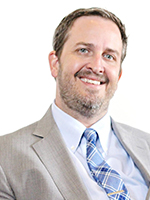
Jeremy Beer has worked in the nonprofit sector since 2000. Prior to co-founding American Philanthropic, LLC, in 2009, he was vice president of publishing and information systems at the Intercollegiate Studies Institute, where he also served as the editor in chief of the institute's award-winning press, ISI Books.
As the principal partner at American Philanthropic, Beer works closely with philanthropies and nonprofit clients in such areas as organizational strategy, board development, program analyses and audits, leadership and staff training, and campaigns. Beer is the author of The Philanthropic Revolution: An Alternative History of American Charity; Fundraising When Times Are Bad: A Guide for Nonprofit Leaders; and, with his American Philanthropic co-founder, Jeff Cain, The Forgotten Foundations of Fundraising: Practical Advice and Contrarian Wisdom for Nonprofit Leaders. Beer has published on philanthropy, culture, and society in various academic and popular journals, including The Washington Post, the Washington Examiner, National Review, HistPhil, Comment, First Things, Touchstone, the American Conservative, Front Porch Republic, and the Utne Reader. He has lectured at or for the Institute for Catholic Philanthropy, State Policy Network, the American Political Science Association, the National Catholic Development Conference, Wake Forest University, Georgetown University, Calvin College, Augustana College, and elsewhere.

Alicia Manning is a senior program director involved in many areas of the Foundation's giving, including welfare reform, education reform, urban renewal, youth engagement and character formation, religious freedom, marriage and family, philanthropy and nonprofit management, and the revitalization of civil society. Since joining the Foundation in 1996, she has aimed to highlight the role of faith-based and private, voluntary efforts in solving society's most pernicious problems. Manning serves on the selection committee for the Manhattan Institute's Civil Society Award and served on a gubernatorial commission on the family. She holds a BA in international relations from the University of Wisconsin–Milwaukee.
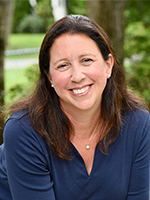
Naomi Schaefer Riley is a resident fellow at the American Enterprise Institute focusing on issues regarding child welfare as well as a senior fellow at the Independent Women's Forum. She also writes about parenting, higher education, religion, philanthropy, and culture.
She is a former columnist for the New York Post and a former Wall Street Journal editor and writer, as well as the author of six books. Her book, Til Faith Do Us Part: How Interfaith Marriage is Transforming America (Oxford, 2013), was named an editor's pick by the New York Times Book Review.
Riley's writings have appeared in the Wall Street Journal, the New York Times, the Boston Globe, the LA Times, and the Washington Post, among other publications. She appears regularly on FoxNews and FoxBusiness and CNBC. She has also appeared on Q&A with Brian Lamb as well as the Today Show.
She graduated magna cum laude from Harvard University in English and Government. She lives in the suburbs of New York with her husband, Jason, and their three children.
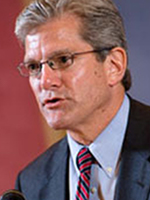
William A. Schambra is a Senior Fellow at Hudson Institute. Prior to joining Hudson as director of the Institute's Bradley Center for Philanthropy and Civic Renewal in January 2003, Schambra was director of programs at the Bradley Foundation in Milwaukee. Before joining Bradley in 1992, Schambra served as a senior advisor and chief speechwriter for Attorney General Edwin Meese III, Director of the Office of Personnel Management Constance Horner, and Secretary of Health and Human Services Louis Sullivan. He was also director of Social Policy Programs for the American Enterprise Institute, and co-director of AEI's "A Decade of Study of the Constitution." From 1984 to 1990 Schambra served as a member of the National Historical Publications and Records Commission, to which he was appointed by President Reagan. From 2003 to 2006 he served on the board of directors of the Corporation for National and Community Service.
Schambra has written extensively on the Constitution, the theory and practice of civic revitalization, and civil society in the Wall Street Journal, the Washington Times, Policy Review, the Christian Science Monitor, Nonprofit Quarterly, Philanthropy, the Chronicle of Philanthropy, and Crisis, and has edited several books, including As Far as Republican Principles Will Admit: Collected Essays of Martin Diamond. The NonProfit Times named Schambra among its 2013 Power & Influence Top 50, lauding him for "consistently sticking his finger in the eye of the sector's elite" and raising questions "designed to broaden the idea of philanthropy's role in America today."
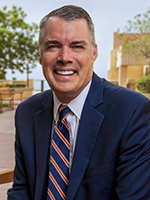
Pete Peterson is the Braun Family Dean at the Pepperdine School of Public Policy and is co-director of the American Project. He is a leading national speaker and writer on issues related to civic participation, and the use of technology to make government more responsive and transparent.
Peterson writes widely on public engagement for a variety of major news outlets including the Wall Street Journal, Los Angeles Times, and San Francisco Chronicle, as well as numerous blogs. He is a regular guest on the "Politics Roundtable" with host Larry Mantle on KPCC radio.
He contributed the chapter, "Place As Pragmatic Policy" to the edited volume, Why Place Matters: Geography, Identity, and Civic Life in Modern America (New Atlantis Books, 2014), and the chapter "Do-It Ourselves Citizenship" in the volume, Localism in the Mass Age (Wipf & Stock, 2018).
Peterson has been a public affairs fellow at The Hoover Institution, and he serves on the Leadership Councils of the Public Policy Institute of California and California Forward, and on the boards of the Homeland Security Advisory Council and the Da Vinci Charter Schools.
Peterson was the Republican candidate for California Secretary of State in 2014.
Tuesday, October 12, 2021
9:00 AM PDT / 5:00 PM BST
Online Zoom Session
This webinar series made possible by a grant from the Sarah Scaife Foundation.